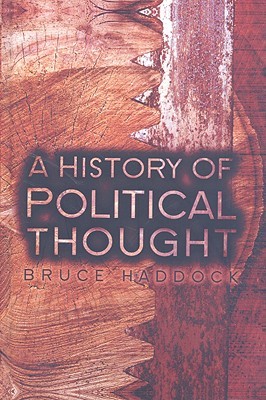
- We will send in 10–14 business days.
- Author: Bruce Haddock
- Publisher: Polity Press
- ISBN-10: 0745640842
- ISBN-13: 9780745640846
- Format: 15.8 x 23.1 x 3.1 cm, hardcover
- Language: English
- SAVE -10% with code: EXTRA
Reviews
Description
This book is a comprehensive introduction to the history of political thought, tracing the development of arguments and controversies from ancient Greece, through different forms of community, state and empire, to today's global concerns. Bruce Haddock highlights the bewildering variety of contexts that have framed political thinking, yet also displays structural features that have proved to be remarkably stable over time. An important theme in the book is the need to see political philosophy, even in its most abstract formulations, as a response to historically contingent circumstances, without limiting its relevance to those circumstances. The emphasis throughout is on political thinking as a response to hard choices. Major thinkers covered include Plato, Aristotle, Augustine, Aquinas, Machiavelli, Grotius, Locke, Spinoza, Montesquieu, Hume, Kant, Rousseau, Burke, Hegel, Marx, Mill, Lenin, Schmitt, Nietzsche, Foucault, Oakeshott and Rawls.
The book treats political philosophy and theory as a tentative engagement with a fractured and controversial past. Yet political thinking remains the exercise of a burden of a responsibility that is inescapable for us. Haddock introduces a history that continues to shape our understanding of ourselves as political and historical creatures.
A History of Political Thought will be of interest to students and scholars of politics, history and philosophy.
EXTRA 10 % discount with code: EXTRA
The promotion ends in 17d.07:49:38
The discount code is valid when purchasing from 10 €. Discounts do not stack.
- Author: Bruce Haddock
- Publisher: Polity Press
- ISBN-10: 0745640842
- ISBN-13: 9780745640846
- Format: 15.8 x 23.1 x 3.1 cm, hardcover
- Language: English English
This book is a comprehensive introduction to the history of political thought, tracing the development of arguments and controversies from ancient Greece, through different forms of community, state and empire, to today's global concerns. Bruce Haddock highlights the bewildering variety of contexts that have framed political thinking, yet also displays structural features that have proved to be remarkably stable over time. An important theme in the book is the need to see political philosophy, even in its most abstract formulations, as a response to historically contingent circumstances, without limiting its relevance to those circumstances. The emphasis throughout is on political thinking as a response to hard choices. Major thinkers covered include Plato, Aristotle, Augustine, Aquinas, Machiavelli, Grotius, Locke, Spinoza, Montesquieu, Hume, Kant, Rousseau, Burke, Hegel, Marx, Mill, Lenin, Schmitt, Nietzsche, Foucault, Oakeshott and Rawls.
The book treats political philosophy and theory as a tentative engagement with a fractured and controversial past. Yet political thinking remains the exercise of a burden of a responsibility that is inescapable for us. Haddock introduces a history that continues to shape our understanding of ourselves as political and historical creatures.
A History of Political Thought will be of interest to students and scholars of politics, history and philosophy.


Reviews